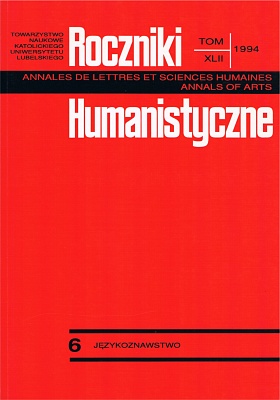Why Has the Word „pop” (Orthodox Priest) Become an Insulting One in Polish?
Abstract
In contemporary Polish the word „pop (priest in the Orthodox and Greek Catholic Churches) can be used in a disparaging way. Considered as an insulting term it is replaced with the expression „Orthodox priest”” . Dictionaries of the Polish language have not included these changes yet.
In the article we analyse the reasons for the gradual degradation of the word „pop” in the history of the Polish language. The first change took place in the 15th-16th centuries when the word „pop” (meaning „priest in general”) was replaced by the word „ksiądz” („priest in the Roman Catholic Church) as result of differentiation of meanings inside the language; and the same word, „pop”” , or „pop ruski”, meaning „priest of the Orthodox (Ruthenian) rite” was shifted to the margin of the language. After the Union of Brześć (1596) new compounds came into being: ,,pop-unita” and „pop unicki” (Uniat) that were transformed into „ksiądz unicki” and „ksiądz” („priest in the Uniat Church”) by the 19th century. The reasons for this change lay outside language. It was a consequence of occidentalisation (latinization and polonization) of the Uniat Church in the sphere of liturgy and morals of the clergy and congregation. Chronologically the latest change that resulted in „pop” becoming „ksiądz prawosławny” („Orthodox priest”) is also rather an extra- and not intra-linguistic process. However, it is not polonization that is the basis of this change, but the wish to break away from the past when the priests in the czarist Russia were closely connected with the government administration. Thus the reasons are cultural but also historical and political.
From the linguistic point of view the parallelism of the medieval and contemporary processes of degradation of the word is significant.
Copyright (c) 1994 Roczniki Humanistyczne

This work is licensed under a Creative Commons Attribution-NonCommercial-NoDerivatives 4.0 International License.





